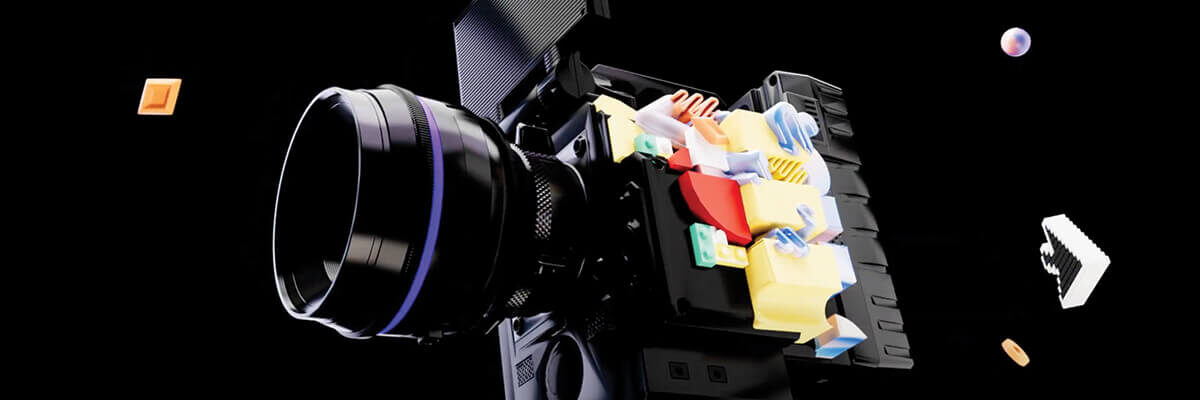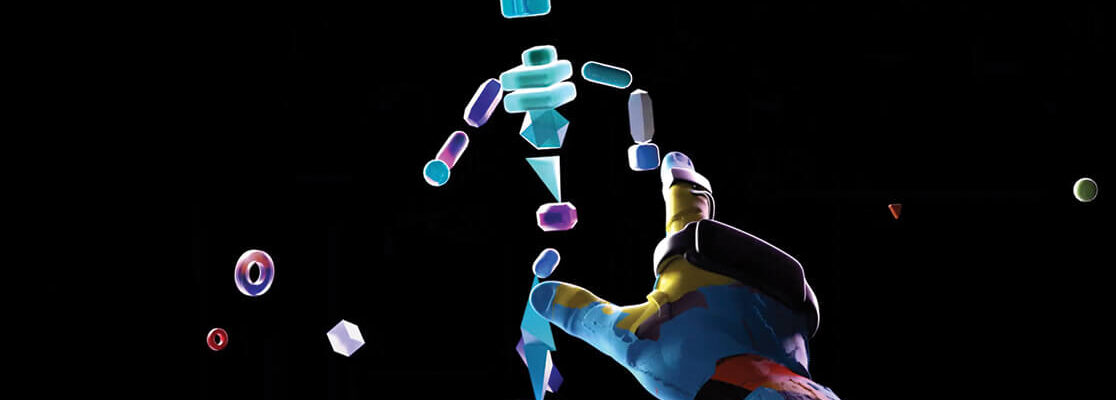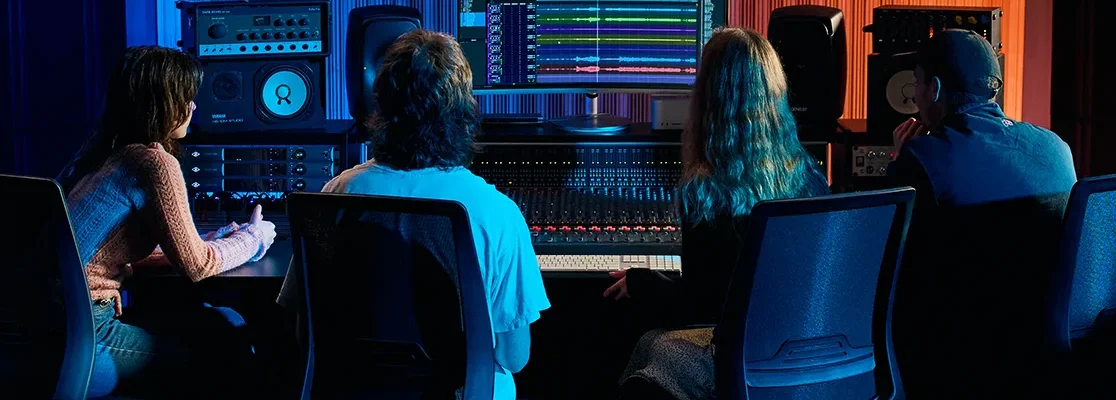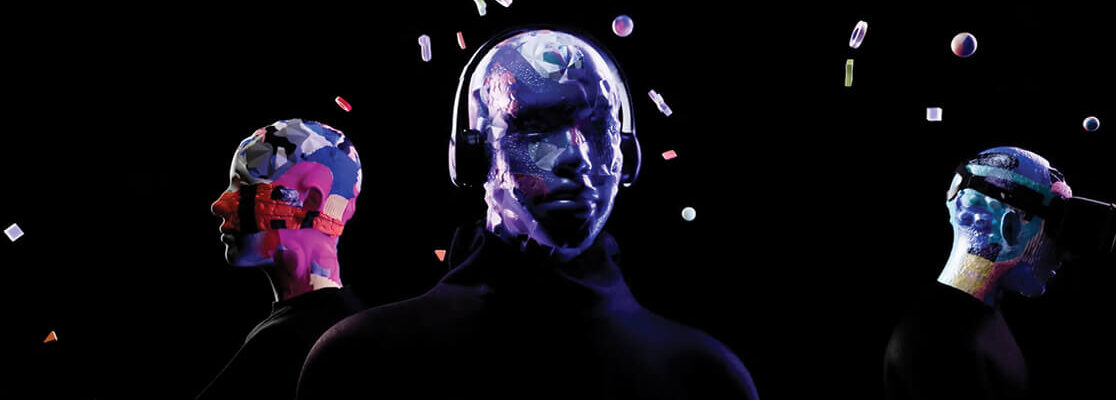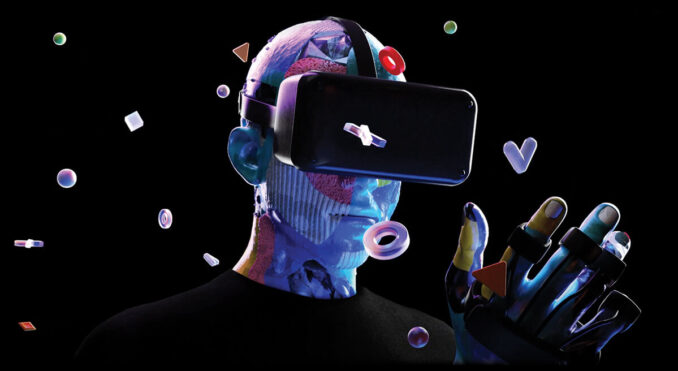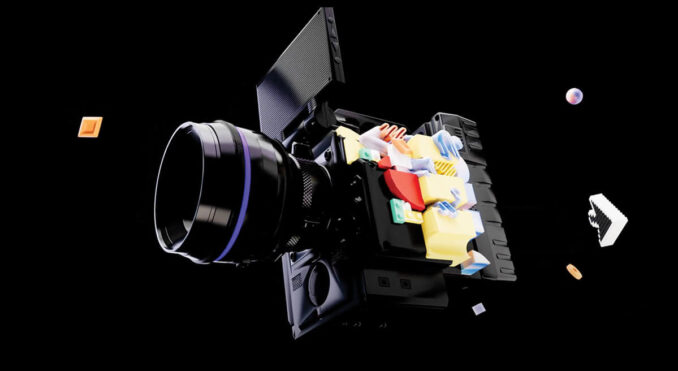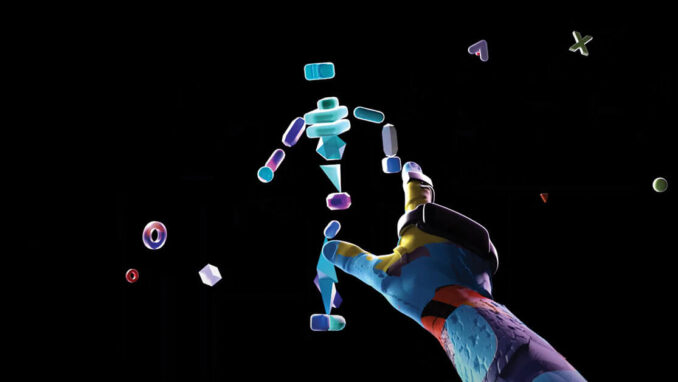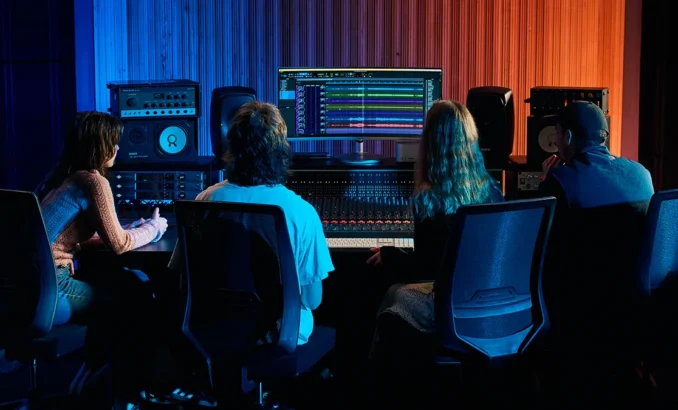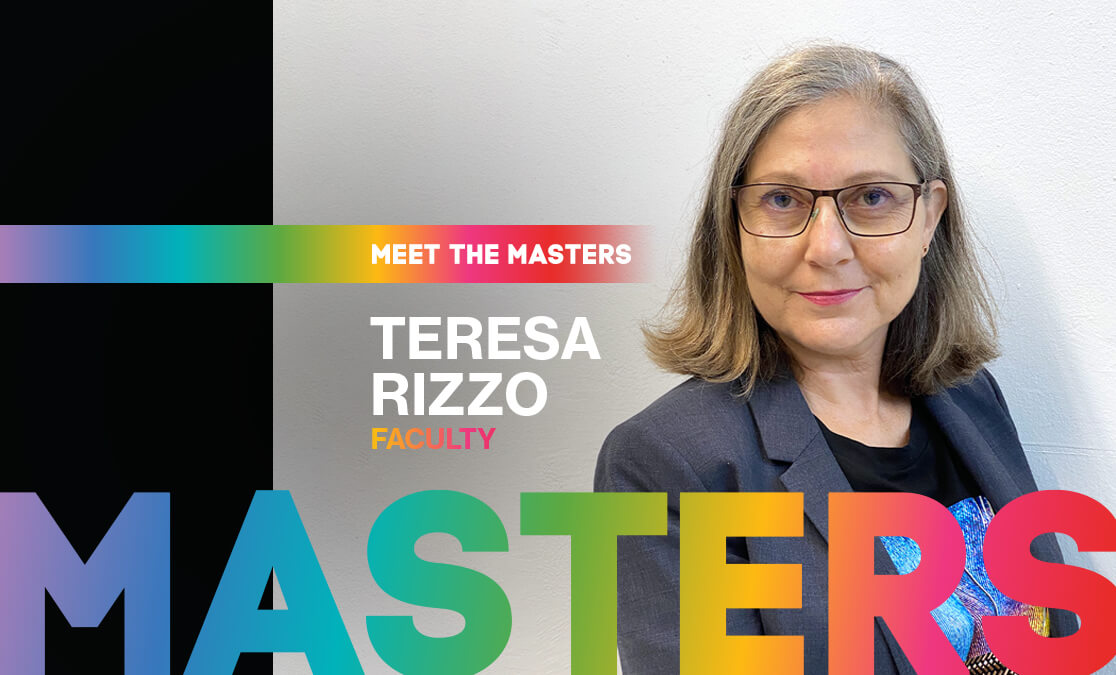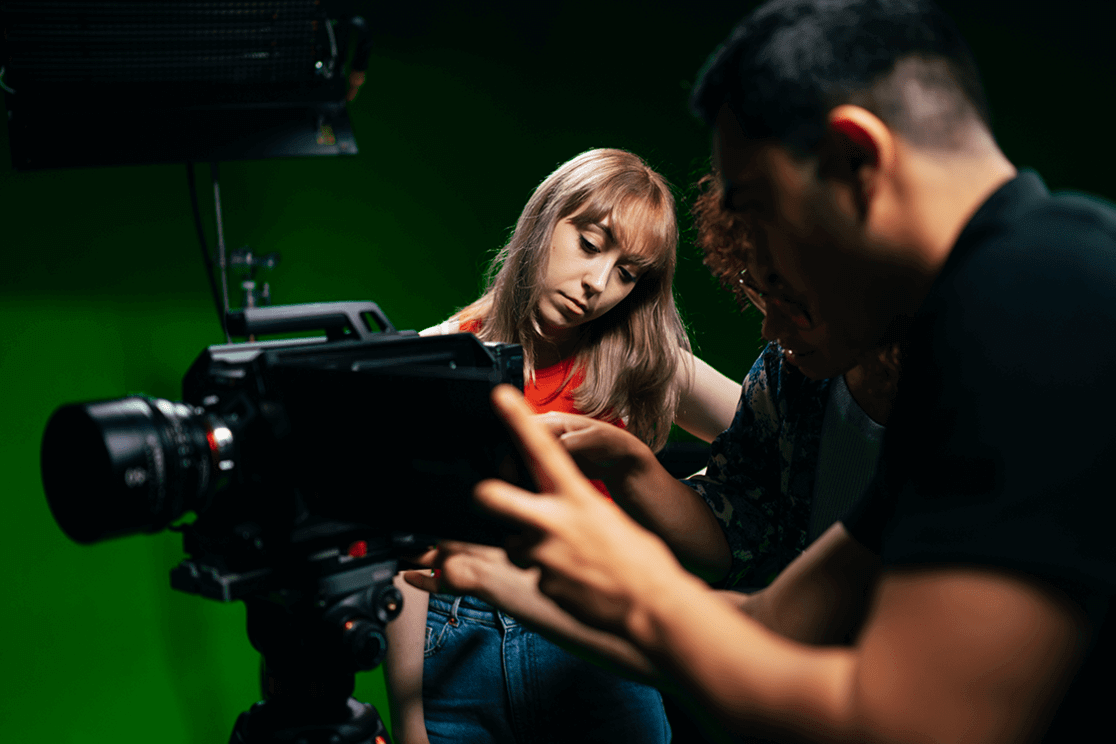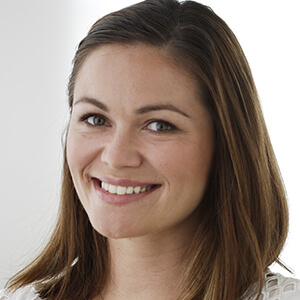
MEET THE MASTERS
– Faculty –
Dr Teresa Rizzo
Teresa is based in Perth but works with postgraduate students and staff online. She has worked as a story producer for Foxtel before completing a PhD in film philosophy. Find out more about Teresa and the postgraduate programs available at SAE.
What is your professional background?
My background is in film practice and film theory.
These days I focus on teaching and research, and I have taught media at several universities around Australia. I have worked at the intersection of theory and practice for the last two decades.
In the early 2000s, I was a story producer for Foxtel for 11 years. During the last few years at Foxtel, I completed a PhD in film philosophy, which focused on the affective embodied experience of film viewing. I’m interested in how films engage viewers through felt experiences and how they introduce us to non-human mechanical forms of perception through cinematography and editing. My practice has greatly informed my thinking about film and philosophy, so I’m always interrogating my experience of cinematography and editing when researching film.
Can you share some of the projects you have worked on?
At Foxtel I wrote and produced a huge range of short programs on films and filmmakers. I made over 40 short documentaries on filmmakers including John Carpenter, Oliver Stone, Gillian Armstrong and Jack Thompson. As an academic I have published the book Deleuze and Film: a feminist introduction, as well as other book chapters and journal articles.
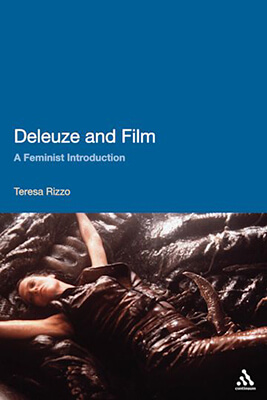
What do you most enjoy about teaching within the MCI program?
I love that the students in the Master of Creative Industries (MCI) come from diverse creative backgrounds and with it bring all kinds of expertise and knowledge that they can share. I love seeing students convert their industry experience and their creative practice into interesting research projects. Their diverse backgrounds means that they bring something new and unique to their research projects.
What are some of the benefits you have seen students gain by studying the Postgraduate courses?
I’ve seen students finally have the time and space to tackle their passion projects. Often students come to the MCI because they have been thinking about a project for a long time, but it hasn’t aligned with their industry work. With the support of mentors and peers, students finally have a space to develop these ideas.
What are some standout, or surprising projects you have seen being produced?
As the course leader I see a lot of the project before they are sent out for examination.
Recently Kristina Chapman’s project on how filmmaker’s have had to adapt and understand user participation on social media platforms like TikTok was very novel.
Christopher Lambert’s project ‘Sounds of Space: Utilising the sonic language of Space Music in Music Production’ is a great example of a passion project that he brought into the MCI and developed into an extraordinary mix of theory and practice. The music that comes out of the project is totally inspiring. In both cases, students benefited from mentors that were dedicated to their projects.
What inspires you about the creative industries?
We often talk about innovation in relation to the sciences, but I see real innovation of ideas and in the creative industries. It is a space where ideas from different disciplines can be explored creatively.
Where do you see the future of the creative industries?
Creative thinking is now embedded in all industries. The creative industries in no longer something that solely sits on its own, in the future it will be part of all industries. Technology has always been part of creative thinking and innovation. As new technologies emerge it will produce new ways of thinking with new mediums.
Check out Teresa’S publications
BOOKS
Rizzo Teresa (2014). ‘Without Judgment: A Feminist Reading of the Immanent Ethics and Aesthetics in Morvern Callar’ in A Critique of Judgement in Film and Television, eds. Silke Panse and Dennis Rothermel, Hampshire: Palgrave Macmillan.
Rizzo Teresa (2012). Deleuze and Film: A Feminist Introduction, London: Continuum Publishing.
Rizzo Teresa (2007). ‘Programming Your Own Channel: An Archaeology of the Playlist’ in TV Futures: Digital Television Policy in Australia, ed. Andrew T. Kenyon, Melbourne University Press.
ARTICLES
Rizzo Teresa (2015). ‘Television Assemblages’, The Fibreculture Journal, Issue 24.
Rizzo Teresa (2013). ‘Expanded Television: Making sense of Gene Youngblood in a Digital Age’, Australian Journal of Communication, 40 (3).
Rizzo Teresa (2008). ‘YouTube: The New Cinema of Attractions’, Scan: Journal of Media Arts Culture, 5.1.
Rizzo Teresa (2007). ‘Discourses of Choice in Australian Pay Television’, Media International Australia incorporating Culture and Policy, 124.
Rizzo Teresa (2004). ‘The Molecular Poetics of Before Night Falls’, Rhizomes: Cultural Studies in Emerging Knowledge, 11.12, 2005,
Rizzo Teresa (2004). ‘The Alien Series: A Deleuzian Perspective’, Women: A Cultural Review, 15.3.
Rizzo Teresa and Maras Steven (1995) ‘On Becoming—An Interview with Moira Gatens’, Southern Review, 28.1 1995.
BOOK REVIEWS
Rizzo Teresa (2014). Media Audiences: Effects, Users, Institutions, and Power by John L. Sullivan, Media International Australia Incorporating Culture and Policy, 152.
Rizzo Teresa (2010). Translating Time: Cinema, the Fantastic, and Temporal Critique by Bliss Cua Lim, Media International Australia Incorporating Culture and Policy, 136.


